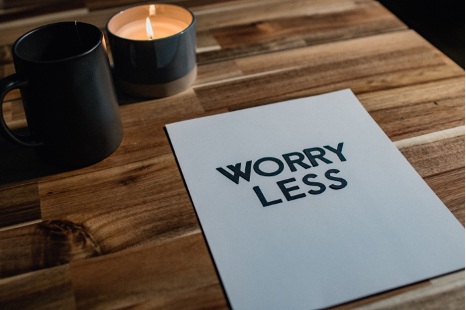Students learn to cope with heightened separation anxiety due to pandemic

Worry less
Anxiety is something everyone experiences on a day-to-day basis. Some have it when being late to work, some have it when getting an overwhelming number of assignments and some have it when they have to leave their best friend or partner.
Although it is more common in children, many adults go through and experience intense levels of separation anxiety. This can be harmful to one’s health and can leave them feeling depressed, lonely and anxious.
A Kent State junior, Christine Crabiel, said it can affect her whole day when she experiences separation anxiety. She gets anxiety when leaving her mom on her way back to school.
“I get really upset and I feel down about myself,” Crabiel said. “It can make me lie in bed all day without eating, sometimes crying and feeling not worthy.”
Crabiel thinks she had separation anxiety since she was a child. She said she would always cry when she was dropped off at daycare or school. She grew up in a single parent household, so she became close with her mother.
She talked about how the pandemic heightened her separation anxiety. When the university shut down back in March, Crabiel went home where she stayed through the rest of the semester and into the summer until finally coming back to Kent at the start of the fall semester.
“I spent so many months with my parents and siblings that when I came back to Kent for school, I was upset to leave them,” Crabiel said. “I went from seeing them every day to not seeing them as much.”
There are many online platforms that talk more in detail about separation anxiety. To cope with separation anxiety, you can do many things to get your mind off missing someone.
“Whenever I am feeling down and lonely, I try to do things that make me feel happy,” Crabiel said. “I love to dance and workout when I am sad because it changes my mood. Other times, it just feels good to cry it out.”
A Kent State senior, Kaitlyn Teams, has normal anxiety and has been working to overcome her separation anxiety.
Teams said she always had day-to-day anxiety. After a while she started getting bad anxiety when she would leave her boyfriend and her parents because they would help her get through her normal anxiety behaviors.
“I got attached to the people who helped me with my normal anxiety and when they were not around, I started getting bad anxiety that something would go wrong without them being there,” Teams said.
When she had separation anxiety, she wanted to be around them 24/7 so she could remain calm and not have her anxiety spiral out of control.
“I couldn’t focus on normal tasks. I kept thinking about the ‘what ifs’ and started thinking irrationally,” Teams said. “I couldn’t let myself live like this, I knew I had to do something.”
She talked about how she went to therapy once a month, trying to get help so she could think differently when her favorite people were not around. Teams said she could not continue living her life this way. She knew she was going to be alright; her anxiety just kept triggering her.
Teams said you could get over separation anxiety and it will get better. She said she still has regular anxiety, but the separation anxiety is mostly gone. Her therapist gave suggestions on how to cope with it.
“My therapist told me that I need to try and reply on myself more than I rely on others. To take it one day at a time and challenge myself when possible,” she said. “They also told me to distract myself when I feel the anxiety coming along. They gave me multiple strategies like practicing self-care, talking to myself, scrolling through social media, playing games and watching TV.”
It is very common to experience anxiety of all types. If you ever feel like you cannot handle the anxiety you are experiencing, call or text the help line or schedule a meeting with a therapist.
Cassondra Siaus cover relationships. Contact her at [email protected].


